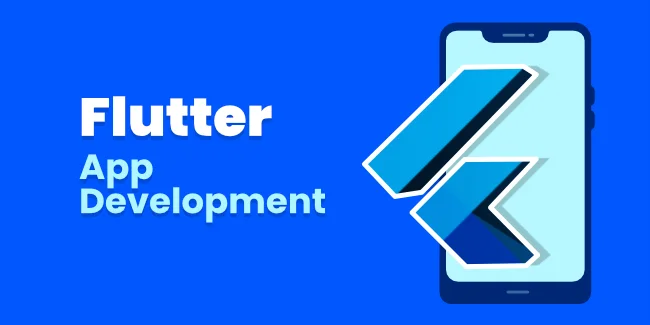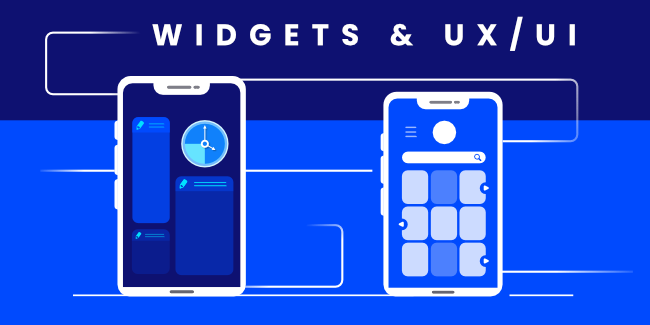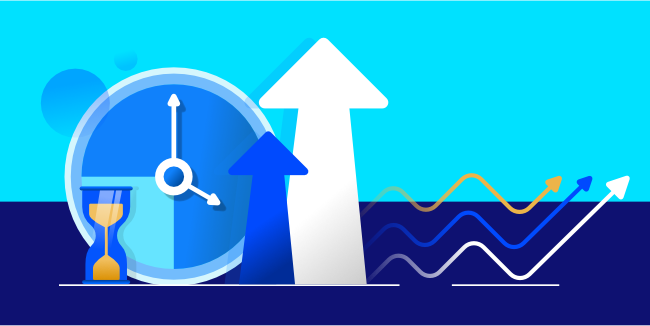Mobile Development
Technologies
mobileapp
flutter
appdevelopment
Flutter App Development - Everything You Need to Know

Mobile applications have become an integral part of our lives. Mobile app development services are becoming increasingly available, so it's no wonder that over 1,000 new applications appear every day. Hence, it's no wonder that only the best-prepared applications are successful in the market. A critical success factor is, among other things, the choice of the technology stack. If you choose a language or framework that doesn't fit your application's needs, the chances of success are drastically reduced.
Flutter is a fantastic developer kit designed to build cross-platform applications. With its help, you can create applications very quickly, and the numerous functions of Flutter allow you to create, among others, amazing visual effects, thanks to which the UX/UI design is always at a very high level. Also, Flutter is considered to be a great MPV builder, which is an essential part of application development.
In this article, we will delve into the pros and cons of Flutter as well as talk about the most appropriate use cases.
What is Flutter?
Flutter is a Google-developed open-source software that creates mobile, web, and desktop applications with a single code base that can be run on many platforms. This technology is ideal for cross-platform application creation since it's not a library or framework that must be plugged into other technologies; instead, it's a user interface (SDK).
SDK is used for various tools, including libraries, frameworks, documentation, etc., necessary to build and run an application. The difference between a library and a framework is that a library provides code that can be used in an application to perform a specific function. In contrast, a framework acts as a blueprint for building an application, providing tools to complete the architecture.
Flutter is a widget-based framework. It implies that you may use object-oriented programming for any element in your app. Flutter makes it easy to update or customize widgets. It also gives UI elements that meet the essential standards for web application development.
Flutter creates a broad and active developer community that continuously publishes helpful code examples and supports Flutter developers in creating innovative cross-platform applications.
Flutter is frequently compared to other languages and frameworks. Learn more about the differences and similarities between Flutter and React Native.
What programming language is Flutter based on?
The Flutter SDK is compiled using the Dart programming language, which Google created. Its goal is to replace traditional JavaScript.
Google's new Fuchsia platform is developed from Dart, which functions similarly to other object-oriented programming languages like Java and C#.
Pros of Flutter App Development
There are several programming languages to pick from. Each has its own set of benefits and drawbacks. However, in the case of the Flutter framework, its advantages over other technologies outweigh its disadvantages.
-
Cross-platform App Development
Flutter allows you to create cross-platform applications, so you no longer have to write different codes for iOS and Android. It is very beneficial in terms of project duration and finances.
Flutter's code reuse allows you to use a single codebase for multiple platforms, including websites, desktops, and more. It lowers development time and costs while also allowing apps to run faster.
Time always plays a crucial role in any mobile app development. Developers love to create apps using Flutter because any changes to the code are visible in the application on an ongoing basis. This feature in Flutter is called "hot reload"; it allows you to quickly check different solutions, build user interfaces, add features, and fix bugs.
Hot reloading lets you inject updated source code files into a running Dart Virtual Machine (VM). After the virtual machine updates the classes with new versions of the fields and functions, Flutter will automatically rebuild the widget tree. This way, you can see changes made immediately without restarting your app.
-
Support for legacy devices
It is a standard that operating systems are constantly updated and made available to users. Flutter has the advantage over other technologies that the application created will look the same on both older and new Android and iOS - regardless of operating system updates. Contrary to appearances, this is a massive advantage because it reduces costs, saves time Flutter team, and provides a high level of service.
-
Unique widgets & User Experience
Creating a Flutter app is about using ready-made widgets to create an app. They allow for a consistent object model and an easy-to-use programming process. Everything you deal with in Flutter, from button to font, is a widget. Flutter uses so-called stateful widgets that describe part of the user interface by creating a network of other widgets. The widgets and individual networks can be combined to create very advanced layouts. However, it is worth remembering that Flutter widgets are organized in trees, so it is worth planning all the application functions well in advance.

The unique Flutter widgets allow you to create, among other things, incredible visual effects, thanks to which the user experience is always at a very high level. At the same time, you don't have to worry about the user interface on different devices because it will look the same everywhere.
As we mentioned, Flutter allows you to create cross-platform applications, affecting cost-effectiveness. It is cheaper and faster to develop apps with one codebase than create different codes for iOS and Android apps. Savings come from fewer programmers needed, less project complexity, and shorter application development time.
Applications made with Flutter guarantee years of support from Google because the company uses the same technology. So it is evident that Google will take care of this technology, release new versions and publish updates.
Many Google projects were created with Flutter, so it's hard to imagine a situation where Futter suddenly ceases to exist
Flutter 2 is the latest version of Flutter that has moved from developing mobile applications to being a cross-platform technology. It allows Flutter to create apps for Linux, Windows, macOS, Android, and iOS devices. The Flutter team is also expanding its capabilities to IoT and wearables such as smart home appliances.
Multiplatform mobile app development is a dynamically developing trend, and nothing indicates anything has changed.
Flutter is characterized by high performance, thanks to its excellent reputation among developers.

A few years ago, Flutter's performance was higher than that of, for example, Xamarin or React Native. Its creators are still working on this aspect, so the efficiency of Flutter development is constantly improving.
Flutter is perfect for creating a Minimum Viable Product. Building an MVP is now a natural part of the software development process. MVP is usually a basic version of an application with essential functions. Thanks to this, you can test the concept and collect the first feedback that will help improve the final product. MPV helps verify the idea and obtain financing for the project from investors. The developers consider Flutter to be a great MPV builder.
Cons of Flutter App Development
There's no such thing as perfect technology, and Flutter is included in that statement. However, our decades of experience developing Flutter apps show that the advantages of Flutter outweigh its disadvantages. However, the disadvantages make Flutter cannot be the perfect tool for any application. Therefore, it is worth getting to know them before choosing the right programming language.
The widgets make Flutter's applications large, making them take up a lot of space. In addition, they take longer to download and update due to file size. If you are looking for technology to create a lightweight application, Flutter is not the best choice.
To keep up with changes in programming requirements, Flutter modules must be updated. Because the modules are integrated into the program as permanent components, they must also be rebuilt and reinstalled on devices.
-
A small number of tools and libraries
Flutter is a relatively new framework, so there aren't many libraries and tools available yet to extend the functionality. However, the large Flutter community makes this disadvantage the least severe.
What Types of Applications can be built with Flutter?
We mentioned earlier that Flutter allows you to create attractive, interactive applications that run on multiple operating systems. But what types of apps is Flutter the best choice for?
Flutter is characterized by high efficiency and speed. These are features that are critical to gaming applications. For such an application to be successful, it must run quickly and smoothly. Otherwise, users will be struck down and quickly find another, better-performing application. And once lost users are difficult to recover.
Flutter App Development is ideal for producing high-performance gaming apps and utilizing innovative AR capabilities.
On-Demand Applications are a type of application that has experienced tremendous growth in recent times. The Covid-19 epidemic, the associated restrictions on movement, and the difficulties in making traditional purchases contributed to this.
Flutter App Development is perfect for on-demand apps because it provides immense performance, spectacular design, and a delightful user interface.
-
Photo Editing Applications
More and more people have Instagram or other social media accounts, where photos are often the primary form of communication. Therefore, having a simple and intuitive photo editing application is slowly becoming a necessity. And Flutter is the perfect tool for creating an easy-to-use app with advanced features and personalized suggestions.
-
Machine Learning Applications
Another trend in mobile app development is machine learning (ML), which allows for customization and accurate sales predictions. The technology's increased popularity, coupled with the dynamic growth of Flutter, has led to the integration of ML into a variety of applications. Flutter provides a plug-in that gives access to Firebase ML components and kits. Even novice Flutter developers may use this kit to add ML features like face or voice recognition to their apps using no coding knowledge.
Summary
With Flutter, app development just got faster, easier and cheaper. Flutter app development helps businesses build similar to native apps with a lower budget and run them simultaneously on Android and iOS operating systems.
If you want to ensure that Flutter is the best choice for your project, arrange a free consultation with us. As a smartphone application development company, we have extensive knowledge and experience that we are happy to share with others.